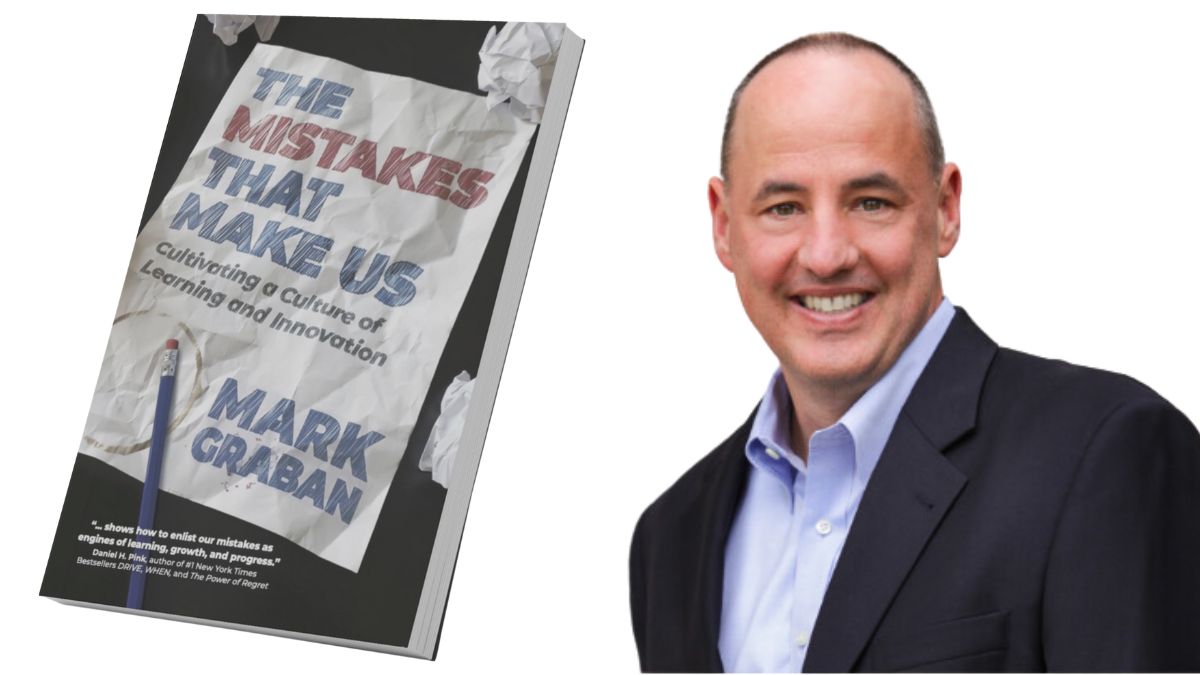Here is some material that was not used in the book, The Mistakes That Make Us: Cultivating a Culture of Learning and Innovation.
Here is his episode of “My Favorite Mistake”:
Entrepreneur Joel Trammell, most recently founder and chairman of Khorus Systems, is the author of The Manager’s Playbook.
After raising $11 million to start a business in his mid-30s, Joel twice made a mistake in selecting a vice president of marketing. The first hire didn’t know the technical market of computer networking. Aiming not to repeat that mistake, he found a successor with proper knowledge. He agreed to move to Austin, but a few months later, it was clear he wasn’t moving. The VP probably feared making the mistake of relocating for an early-stage startup. Joel thought it was a mistake for the VP to think he could be effective just being there Monday afternoon through Thursday.
It can be a mistake to fire an executive too quickly, but “so many CEOs are very slow to move when they don’t have the right executive in place” — a different mistake. Joel adds that since the CEO will be judged on the performance of their team, “if they’re not the right [person], you’ve got to move pretty quickly on those things.”
“It took me three tries to get a marketing VP and a couple of tries to get a sales VP.” The third marketing VP stayed for years and had a very successful run with the company.
Joel doesn’t make the mistake of thinking he needs to have all the answers as CEO. He’s comfortable hiring executives who know a lot more about their function than he can. Instead of micromanaging, he has conversations about aligning clear objectives and their department’s vision to the company’s. He works to create accountability — which doesn’t mean leaping to punishment, but rather to fight the “natural human inclinations to say, ‘That wasn’t my fault.’” “Ultimately, the CEO is responsible for the team they put on the field,” Joel adds.
It’s a mistake, Joel says, to think the CEO needs to have played every role that reports to them, just as it’s a mistake to think that Bill Belichick couldn’t have been “arguably the greatest coach in NFL history” without ever playing in the NFL. “The head coach role is very much like a CEO. You want to be what I call an ‘expert generalist.’ You need to know a little bit about everything, but you can’t be an expert in any more than one area in the company.”
“The two most powerful phrases that CEOs need to use are ‘I don’t know’ and ‘I made a mistake.’”
Joel has noticed “too many CEOs, you could spend a year with them, and they’d never utter either of those phrases. A lot of CEOs think they have to have all the answers.” But does anybody believe it?
Using those phrases are two examples of modeling vulnerable acts. Doing so creates the conditions for higher levels of psychological safety. That’s proven to lead to more innovation and greater success.
We would all be better off using those phrases more often. Then again, it isn’t safe for everybody to do so, as people get punished daily in workplaces with low psychological safety. Even a CEO who wants to say those things might feel punished by their board, investors, or the market. It’s safe for Joel to say those things, so he can set an example for his teams.
But again, words need to be followed by actions. Modeling vulnerable acts needs to be followed by rewarding others. Joel tells CEOs, “Anytime somebody brings a problem to you, the first words out of your mouth need to be ‘thank you.’ Thank you for letting me know that we had a problem. Now let’s talk about how we’re going to solve it. Who’s going to go solve it?”
This culture helps us identify problems when they’re smaller and easier to solve. Joel has seen that employees will “start bringing you more and more problems, and they bring you problems when they’re little problems, small fires, instead of after they’ve blown up and there’s really no way to solve the problem.”
Joel wants CEOs who aren’t stubborn about sticking with decisions. They’re “unwilling to reconsider, even though evidence has come about that shows you’re wrong.” They’re “not willing to say, ‘Hey, I missed that one. We’re going to change direction.’”
Joel wants colleagues to think of him as “authentic and transparent.” But, “you can’t be authentic and transparent if you’re covering up your mistakes and acting like you know everything — when you know you don’t.”
Don’t React Badly to Bad News
Joel Trammell retells a story about Alan Mulally being brought in from Boeing to be the CEO at Ford Motor Company. Mulally realized that Ford’s culture was “so toxic that you couldn’t bring problems up.” The company was on pace to lose billions, but every executive in the boardroom reported their status (for a project or their part of the business) as “green.” Mulally reportedly asked, “How could that be?” One executive, Mark Fields, took the hint from Mulally and was the first to report a “yellow” status — admitting a problem. Mulally said, “Thank you,” and Fields was “in his good graces,” Joel says. It’s probably no surprise that Fields ended up being Mullaly’s successor.
Make Sure You Listen
Joel Trammell has noticed that people often get into management and think, “Wow, I get to make all of the decisions,” and that’s what they do. “Then they wonder why nobody’s following them, and nobody’s getting any better.” Telling people what to do doesn’t mean they will follow with enthusiasm.
But Joel also warns against trying to build complete consensus on every decision. Leaders can strike a balance where they ask for input and use that to inform their decision. He says, whether In football or business, “Somebody with a view of the overall field calls the play” and then everybody executes their part.



